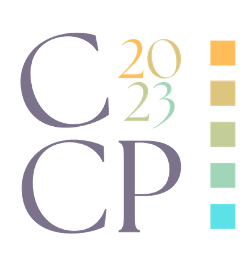
a call to destigmatize the lived experiences of prosumers:
a graduate student’s perspective on self-
disclosures within the mental health field
anja burcak
Intensely emotional as a child, mercurial as a young girl, first severely depressed as an adolescent, and then unrelentingly caught up in the cycles of mani-depressive illness by the time I began my professional life, I became both by necessarity and intellectual inclination, a student of moods.
– Kay Redfield Jamison, An Unquiet Mind, p. 4-5.
In January 2016, the same month as my first psychiatric hospitalization for a manic episode, I discovered Kay Jamison’s memoir. Newly diagnosed with Bipolar Disorder, I was obsessively taking in any information I could find on my condition, from peer-reviewed publications to memoirs. With so much research about devastating patient outcomes (e.g., recurring mood episode rates; elevated suicide rates among this patient population), this memoir became a floatation device in a sea of bad news. In my hands, I held 224 pages of hope written by a world-renowned clinical psychologist, writer, researcher, and advocate with the same diagnostic label as me. Here was proof one can thrive and succeed despite severe mental illness!
“Are you one of us?” was a question I’d been asked many times, in many different ways… [clients say] “I mean one of us. Like us. Because if you were, it would give all of us so much hope.”
– Marsha Linehan, Building a World Worth Living, p. 321.
Professionals such as Marsha Linehan and Kay Jamison have been open about their own struggles. Eliminating prosumers from the field, whether through direct discrimination or through barriers (e.g., lack of accommodations), results in the loss of critical insight, talent, and research. Jamison has published over 100 academic articles, written several books, and won numerous awards. Marsha Linehan has created dialectical behavior therapy (DBT), a therapy that is now used worldwide to assist patients with borderline personality disorder (BPD) and other populations; this treatment has helped countless patients who struggle with severe symptoms and suicidality. Consider how many lives have been changed by these two people alone. Consider what a loss it would be to not have even given them a chance in the first place.
During that time, as an undergraduate student on medical leave interested in pursuing a career in mental health, I started to wonder how “grandiose” my career aspirations were. Could I handle grad school? Would I even be able to get in? Depressive and manic episodes had derailed my undergraduate career: my GPA was sunk, and I had taken multiple semesters off, leaving me doubtful about any academic or professional goals. I began to wonder about the prevalence of what is sometimes referred to as “prosumers” (mental health professionals with lived experience of psychopathologies). How many other students and mental health professionals were facing similar battles? Given that Bipolar Disorder is typically diagnosed in the teenage years or early 20s (Mayo Clinic) and affects approximately 2.6% of American adults in a given year (Johns Hopkins), it is clear that I am far from alone. Why did it seem like no one was talking about it? Why did it seem like I was the only student in this battle? I desperately wanted to feel less alone and let others know that they weren’t alone either.In what some might call a frenzied manic state, obsessed with this new-found calling to eliminate stigma and help others, I created my mental health blog. I called it The Calculating Mind. While I had considered making it anonymous, I was concerned about the message that would send. How can I communicate that no one should be ashamed of their mental health condition while at the same time hiding my own name? In fact, I spent hours upon hours doing the exact opposite. Rather than conceal my Bipolar Disorder, I created blog posts, social media posts, drawings, and articles about my life with it. Even though my manic-level, goal-oriented drive has long vanished, my mission to fight stigma through my lived experiences has not.
The current landscape
To folks in clinical psychology and allied disciplines: Your past struggles do not make you a liability to your science or your patients, nor do they dictate your future happiness or success. If channeled with care, they can amplify your impact.
– Jessica Schleider, via Twitter
As a current School Psychology graduate student, I am excited to see more of a push to accept mental health professionals who disclose lived experiences. However, stigma and discrimination continue to exist both within academia and applied contexts. For example, disclosing lived experience in graduate school applications is still labeled as a “kiss of death,” causing admission committees to eliminate otherwise strong applicants from the pool. Across nine sources for applicants to graduate programs in psychology, Devendorf (2022) found explicit advice not to disclose mental illness about oneself or family. Concerns about disclosure include that the applicant would be “unable to function as a successful graduate student” and have emotional instability (Appleby & Appleby, 2006, as cited in Devendorf, 2022). Such remarks demonstrate the automatic negative assumptions made of individuals with mental health conditions. One of the most well-known guides for clinical psychology applicants, “Mitch’s Uncensored Advice,” warns against several reasons why graduate school applications are eliminated: “[The third reason is] the application contains information that is widely inappropriate and unprofessional. Applicants who disclose their own psychopathology, for example, are often ‘screened out’ at this stage” (Prinstein, 2017). Tossing out an application due to the mention of a mental health condition should not be viewed as acceptable or normalized application procedures. Rather, such approaches should be acknowledged as discriminatory, ableist, and illegal; these practices should be openly acknowledged, targeted, and corrected. The concealment of diagnoses and related discriminatory practices should not be prioritized over the well-being of students.
I had the sinking feeling that being on the wrong side of the desk was not going to sit well with me.
– Kay Redfield Jamison, An Unquiet Mind, p. 85
There is the “othering” of individuals with mental illnesses, even among mental health professionals. It appears that prosumers are often under-discussed and stigmatized. Recent research suggests that a significant proportion of faculty and graduate students in clinical, counseling, and school psychology have past and/or present lived experience of psychopathology (Victor et al., 2022). Based on their findings, more than 80% of respondents endorsed lived psychopathology experience, of which nearly half reported diagnosed mental health difficulties (48%). Despite the prevalence, disclosing psychopathology is avoided for numerous reasons (e.g., negative professional consequences; Victor et al., 2022).
Looking to the future
I have no idea what the long-term effects of discussing such issues so openly will be on my personal and professional life, but, whatever the consequences, they are bound to be better than continuing to be silent. I am tired of hiding, tired of misspent and knotted energies, tired of the hypocrisy, and tired of acting as though I have something to hide.
– Kay Redfield Jamison, An Unquiet Mind, p. 7
I wish to challenge the movement by pushing it further. While disclosures about topics such as mild versions of depression and/or anxiety have become somewhat normalized, severe mental illnesses are typically left out of the conversation. Situations that are chronic, as opposed to having a completed recovery journey, are also left out. If we are to embrace lived experiences, we need to support individuals across the entire mental health spectrum. Victor et al. (2022) provide recommendations for “promoting accessibility and inclusion related to diverse and intersectional lived psychopathology experiences.” These recommendations include reducing barriers to both the disclosure of psychopathology [for those who wish to disclose] and to help-seeking for trainees and faculty. With growing awareness of the prevalence of mental health difficulties among mental health professionals, we can take concrete steps toward targeting discrimination, addressing barriers, and increasing support.
“Have you ever been in a mental institution, Marsha?” I said I had. He said, “I thought so – the scars. Don’t tell anyone.”
– Marsha Linehan, Building a Life Worth Living, p. 293
While it is great to have aspirational figures like Dr. Jamison and Dr. Linehan, I long for more people to share their stories. There has been a positive shift in the past few decades with more people opening up about their experiences. Simultaneously, I do not wish to pressure individuals to disclose their condition. Disclosure, whether to a select few or the world, is a very personal decision. While there should not be negative consequences for doing so, unfortunately many individuals do get negative reactions from disclosure. You shouldn’t have to be a world-renowned scientist with decades of experience in order to feel safe enough to publicly disclose your condition. There should not be professional consequences associated with disclosures. Anyone at any career stage should have the ability to be open, the ability to seek support and accommodations if needed, rather than hide.
Mission to help others
When I developed this treatment, it was to fulfill a vow I had made when I was very young… And the place that I made that vow was at the Institute of Living, because I was a patient here… I want to tell you this because I want you to realize how much hope there really is and how important it is not to give up.
– Marsha Linehan, Building a Life Worth Living, p. 328, as cited from her first public self-disclosure of lived experience
Lived experience of psychopathology needs not to be seen as a negative (e.g., bias, personal weakness). For Dr. Linehan, her biggest career accomplishments were driven by her lived experience as a psychiatric patient. She was able to use her painful past to create something life-saving for a frequently overlooked patient population: a novel, effective treatment approach. For Dr. Freisen, a German psychiatrist with Bipolar Disorder, her past experiences have led to increased empathy for clients which allows for better care; she also noted that patients felt understood and appreciated having Dr. Freisen as an example of someone living a successful life with a mental illness (Freisen, 2022). While mental health conditions certainly can create challenges, it shouldn’t be assumed that someone is limited in their potential due to their diagnosis. For example, I was warned against going to graduate school due to Bipolar Disorder after disclosing to a professor. I refused to be limited by someone else’s perception of what someone with my diagnosis is capable of.
Soon I will be working in school psychology, and I want to push for progress on this front. We need to face the hypocritical ableism that exists within our field. This internalized stigma has detrimental consequences; students and mental health professionals avoid help for fear of academic or professional retaliation. In turn, both mental health professionals and their clients are harmed. I want to normalize conversations on lived experience, for others to know they are not alone. Disclosure should not be an act of bravery.

Anja Burcak is a second-year school psychology graduate student. She uses a variety of formats (e.g., blogging, drawing) to spread awareness about topics including mood disorders, lived expeirence, and student mental health. Find more of her work on her blog, The Calculating Mind, or through her Twitter @CalculatingMind.
